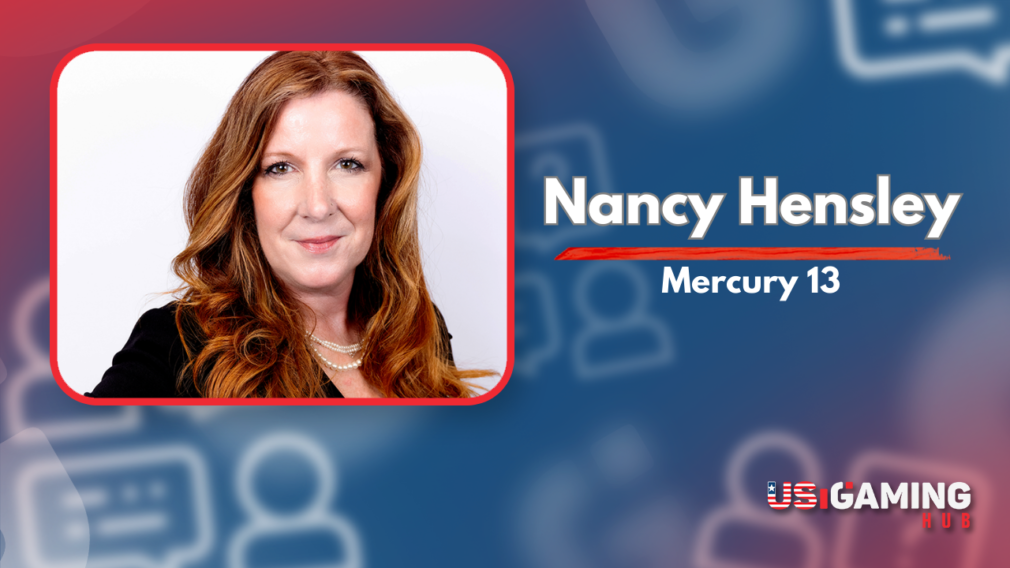“Most sports experiences aren’t designed with women in mind”
In the interview with US iGaming Hub, Nancy Hensley, Founding Member and Advisor at Mercury 13, discusses operators’ approaches to women’s sports, common stereotypes, and misconceptions, as well as the popularity of women’s sports and popularity of sports among women.

Do you think that in recent years, sports have become somewhat more feminine?
At first, I found the question amusing because I’m unsure what “more feminine” really means. Have you seen women play hockey or rugby? The short answer is no. Women have always been fierce and skilled competitors; what we lacked was the stage for people to notice and see this for themselves. Women athletes do not want their sports “pinked and shrinked” – they don’t want the pitch smaller or the net lower.
They want equality. In many sports, like U.S. Women’s Soccer, women have been paid less despite winning more. Recent years have seen a greater awakening to this issue, but we still have a long way to go. I absolutely love that the talented women of the WNBA and NWSL can compete with perfect nails, makeup, and even lashes. If you think that makes them less fierce, you haven’t faced women like Angel Reese on the court.
What conclusions can we draw from the emergence of the Caitlin Clark effect
As sports fans, we naturally gravitate towards superstars. Who didn’t love MJ, Kobe, or LeBron? The only difference here is that this rockstar is a woman, and she has shattered records once held by her male counterparts. Due to her and other emerging players in the WNBA, attention and fanbase have grown, just as they would in men’s sports.
She is a generational talent, but she’s not alone—Angel Reese is breaking records weekly. Great talent will always elevate the game, much like Serena did for tennis or many stars in the NWSL have done.
Do you believe that the popularization of women’s sports and the popularization of sports among women go hand in hand?
No. Women have a significant influence across all sports, not just in women’s leagues, and brands are starting to realize this. Women purchase 46% of NFL merchandise, account for 80% of all sports apparel dollars, and control 60% of spending on men’s clothing. If you are a brand in the sports apparel market and you aren’t targeting women, you’re missing the mark entirely.
The issue is that most sports experiences aren’t designed with women in mind. Take a look at the menus or drink selections at most stadiums. Women’s sports, however, understand this better than anyone. The experience of attending a women’s soccer game compared to a men’s game is very different. Women’s sports tend to be more family-friendly, with brand activations, food menus, and experiences that reflect this. It’s a safer, fun, and family-friendly atmosphere compared to many men’s sports events.
Additionally, it’s important to note that women’s sports don’t attract predominantly female fans. In fact, the fan base is almost evenly split between men and women, but these fans tend to be younger, more highly educated, and earn more.
A crucial aspect of the rise of women’s sports is the push for equality and the creation of more opportunities for women in professional sports. This movement has its roots in the pioneering efforts of figures like Billie Jean King and the implementation of Title IX. Today, we are seeing a broader social acceptance of this cause, driven not only by the moral imperative but also by the significant economic potential of women’s sports
Do you think that companies operating in sports-related industries (considering the theme of our portal, I’ll use sports betting operators as an example) are fully exploiting the potential of women’s sports on one hand and the female audience on the other?
I think everyone involved in women’s sports is eagerly awaiting a significant shift in sponsorship, but so far, it hasn’t happened. When you consider all the growth levers—increased attendance, a growing fan base, higher match-day revenues, and rising broadcast revenues—the real question is, why aren’t more brands flocking to women’s sports?
I believe it’s become habitual to sponsor men’s sports, and brands still view women’s sports as a risky investment. It’s quite perplexing—if you stripped away the gender aspect and presented women’s sports as a new business opportunity, sponsors would be lining up. A few months ago, I wrote an article for Forbes highlighting all the data that proves what a tremendous opportunity women’s sports present, yet brands are still slow to act.
As for sports betting, it’s an intriguing area. Most people in the sports industry understand the significant revenue that comes from sports betting and how it can fuel growth. Betting on women’s basketball, for example, grew by 40% this year. Such growth is hard to ignore. Operators need to ramp up promotions and offers—just as they do for other sports—but with a focus on women’s sports to grow this revenue stream. Support and collaboration from the leagues can also significantly enhance these promotional efforts
How could operators improve in this regard?
Stop treating women’s sports as a special event or afterthought- put it on the same level as the men’s – why not? More promotions, more offers. The growth numbers are reflecting what the fans want.
Recommended
